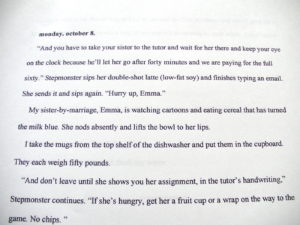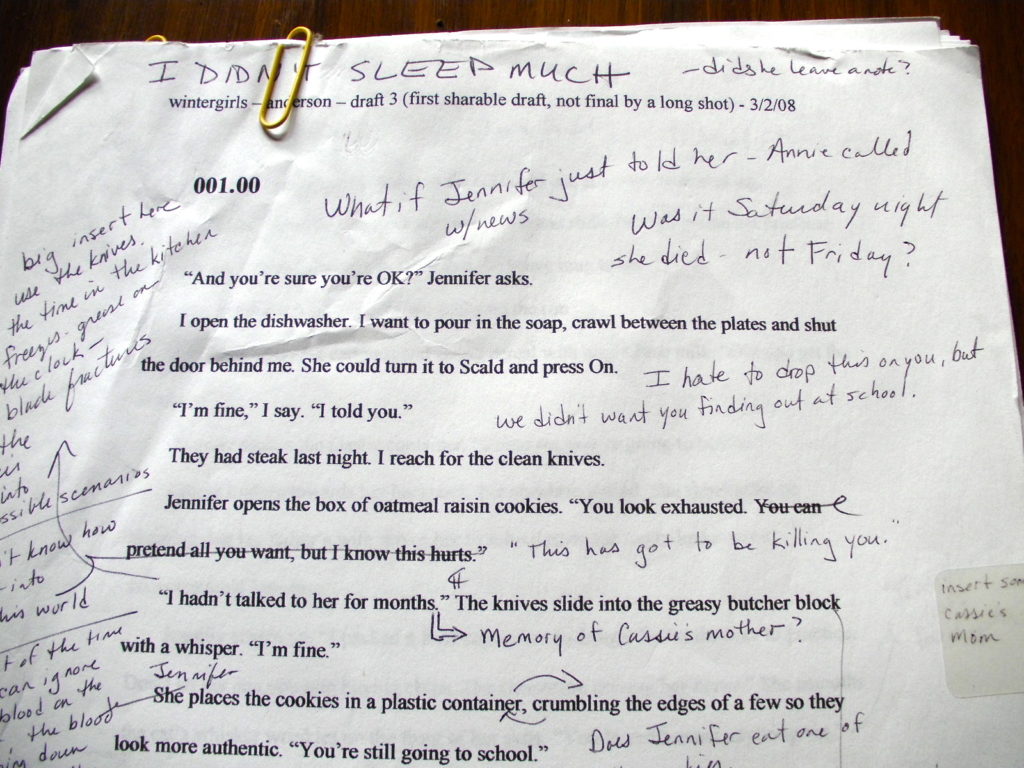I could get in a lot of trouble for this.
The Author’s Guild might send ninja zombies to my house. My agent might draw a line through my name in her Big Book. She’ll use my blood for ink. SCBWI will throw my membership card into the ocean. No one will return my calls.

But you guys are all putting your heart into WFMAD. I hear your stress, feel the twangy nerves that vibrate like overtightened cat guts on a battered violin. By now you are figuring out that simply writing for 15 minutes a day will not transform your writing or your life.
At least, it won’t transform those things quickly.
And you are doubting yourself. Your resolve is failing. There are so many other things to do: that job that pays you every week, or family that needs your love and the car needs an oil change or email has piled up or laundry or you need to exercise, and the dog’s nails have to be clipped and your coupons need organizing…
This is why I have to tell you the Secret.

(No, not the Secret Weapon, Sherlock. That’s for another post.)
The Secret of Writing is this: most of the time, your writing is going to suck. Nothing personal, don’t look at me like that. This pertains to ALL writers. Everywhere. And me. Especially me.
The writing that gets turned into a book is usually pretty good when it finally gets to the Magical Book Stage. That’s because the author has busted her butt to make it so. That first draft? It sucked. The second one? A little better, but not by much.
This means that most of the time an author is working on her book, she does so in the full knowledge that at that precise moment, it is pretty crappy. Not a comfortable feeling. But it’s one you can get used to, kind of the like the discomfort that comes when you are stretching your hamstrings. You know it won’t kill you, you wish it didn’t hurt, but it does, so you deal with it and keep stretching.
It is OK if what you write today is a steaming heap of chicken poo. Because this is not a test. It is your imagination sticking a shovel in the ground of your soul and trying to unearth something. If the shovel raises a couple of blisters, are you going to quit? I sure hope not. It is possible to have the voice in your head telling you that your writing sucks…. and IGNORE it. I do. Every day up until the point when the book I’ve worked on for months and months and months is finally ready to be published I hear that inner critic. Because until the very, very end, the book is kind of awful. Until I finish the work. Then it’s not so awful any more.
That’s when I write another book.
My Writing Process = First Draft of Inspiration and Suckitude divided by ((revision + craft)) x 6 drafts).
It’s OK if what you are writing today is not of the quality to be published tomorrow. It means you are human, which gives you permission to write about the human condition. You’ll make it better when you revise, trust me. Just keep writing.
Any questions?
Ready…
David Almond once said in an interview “Don’t think about doing it or talk about doing it. Do it. Don’t think everything you write has to be good. It can’t be, so feel free to write rubbish. We all know that writing can be difficult, serious, burdensome, etc., but it is also a form of play. So enjoy yourself, and play: doodle and scribble, experiment with possibilities.”
Set…
Turn off your phone. Lock the door.
Today’s prompt:
1. Grab a piece of paper and a pencil or pen. Put them in front of you.
2. You are going to read a poem as fast as you can. You are not reading for meaning or enlightenment. You are trolling for words. (You’ll find a link to the poem I want you to use below.)
3. As you read the poem, write down 3 – 5 words or phrases in it that resonate inside you. I don’t care why you choose those words. But find the ones that make your antennae wiggle.
3a. If you can’t find at least 3 words on the first read-through, read it a second time, but you have to read it out loud. You’ll feel it when a word has some weight that your Muse wants you to explore.
4. Write for 15 minutes about those words. You can weave them into a story, stick them in a character’s mouth, or riff on the memories those words evoke in you.
Use this poem: “Completely Friday” by Luis García Montero, translated by Katie King.
Scribble…Scribble….Scribble!






